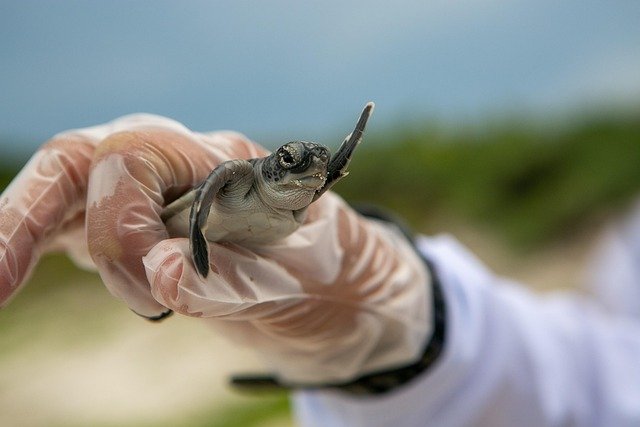Wildlife Conservation Volunteer Work: Making a Difference
Wildlife conservation volunteering offers the chance to protect endangered species and natural habitats while gaining hands-on experience. From habitat restoration to community education, these opportunities allow volunteers to contribute meaningfully to preserving biodiversity and supporting sustainable ecosystems worldwide.

What Wildlife Conservation Volunteering Opportunities Are Available
Wildlife conservation volunteering encompasses a diverse range of activities across different environments and species. Volunteers can participate in sea turtle monitoring programs along coastal areas, assist with bird banding and migration research, or help maintain wildlife rehabilitation facilities. Marine conservation projects offer opportunities to study coral reef ecosystems, while forest conservation programs focus on habitat restoration and species monitoring.
Local opportunities include working at wildlife rescue centers, participating in citizen science projects, and supporting habitat restoration in your area. International programs span locations from Costa Rican rainforests to African savannas, where volunteers contribute to anti-poaching efforts, wildlife research, and community education initiatives. Many programs welcome volunteers regardless of previous experience, providing necessary training and supervision.
How Wildlife Conservation Volunteer Programs Work
Wildlife conservation volunteer programs typically operate through partnerships between conservation organizations, research institutions, and local communities. Most programs require volunteers to commit to specific time periods, ranging from weekend projects to multi-month assignments. Application processes vary but often include background checks, health clearances, and orientation sessions.
Program structure depends on the specific conservation focus and location. Research-based programs may involve data collection, animal monitoring, and laboratory work. Rehabilitation-focused programs center on animal care, facility maintenance, and public education. Habitat restoration projects emphasize physical conservation work like invasive species removal, native plant cultivation, and trail maintenance.
Volunteers receive training in relevant conservation techniques, safety protocols, and species-specific knowledge. Many programs provide accommodation, meals, and transportation, particularly for longer-term or remote assignments. Regular supervision ensures both volunteer safety and program effectiveness.
Wildlife Rescue and Conservation Volunteering Responsibilities
Wildlife rescue and conservation volunteering involves diverse responsibilities that vary based on program focus and volunteer experience level. Common tasks include preparing food for rescued animals, cleaning enclosures, and assisting with basic medical care under professional supervision. Volunteers may help transport injured wildlife, maintain detailed care records, and support rehabilitation exercises designed to prepare animals for release.
Conservation-focused responsibilities often involve field research activities such as conducting wildlife surveys, collecting biological samples, and monitoring animal behavior. Volunteers might assist with GPS tracking, photograph identification databases, and habitat assessment projects. Educational outreach represents another crucial component, with volunteers helping create awareness materials, leading guided tours, and supporting community engagement initiatives.
Administrative support proves equally valuable, including data entry, equipment maintenance, and facility upkeep. Volunteers with specialized skills like photography, veterinary knowledge, or construction experience can contribute their expertise to specific program needs.
| Program Type | Organization | Cost Range | Duration |
|---|---|---|---|
| Local Wildlife Rehabilitation | Regional Wildlife Centers | $0-50/week | Ongoing/Flexible |
| Sea Turtle Conservation | Archelon/Caribbean Conservation | $200-400/week | 2-12 weeks |
| African Wildlife Research | Wildlife Conservation Research Unit | $300-600/week | 4-24 weeks |
| Marine Conservation | Reef Check/Coral Restoration Foundation | $250-500/week | 1-8 weeks |
Prices, rates, or cost estimates mentioned in this article are based on the latest available information but may change over time. Independent research is advised before making financial decisions.
Finding the Right Conservation Program
Selecting an appropriate wildlife conservation volunteer program requires careful consideration of personal interests, available time, and physical capabilities. Research organizations thoroughly by examining their conservation track record, volunteer testimonials, and partnerships with established institutions. Reputable programs maintain transparency about costs, living conditions, and expected volunteer contributions.
Consider location preferences and climate tolerance when evaluating international opportunities. Some programs operate in remote areas with basic accommodations, while others provide more comfortable facilities. Evaluate required skills and training levels honestly, as some positions demand specific qualifications or physical demands.
Contact program coordinators directly to discuss expectations, safety measures, and support systems. Ask about volunteer supervision, emergency procedures, and insurance coverage. Many organizations offer virtual information sessions or connect prospective volunteers with program alumni for firsthand insights.
Wildlife conservation volunteering creates meaningful connections between individuals and critical environmental protection efforts while providing valuable learning experiences and personal growth opportunities. These programs address urgent conservation needs while fostering greater environmental awareness and stewardship among participants from diverse backgrounds.




